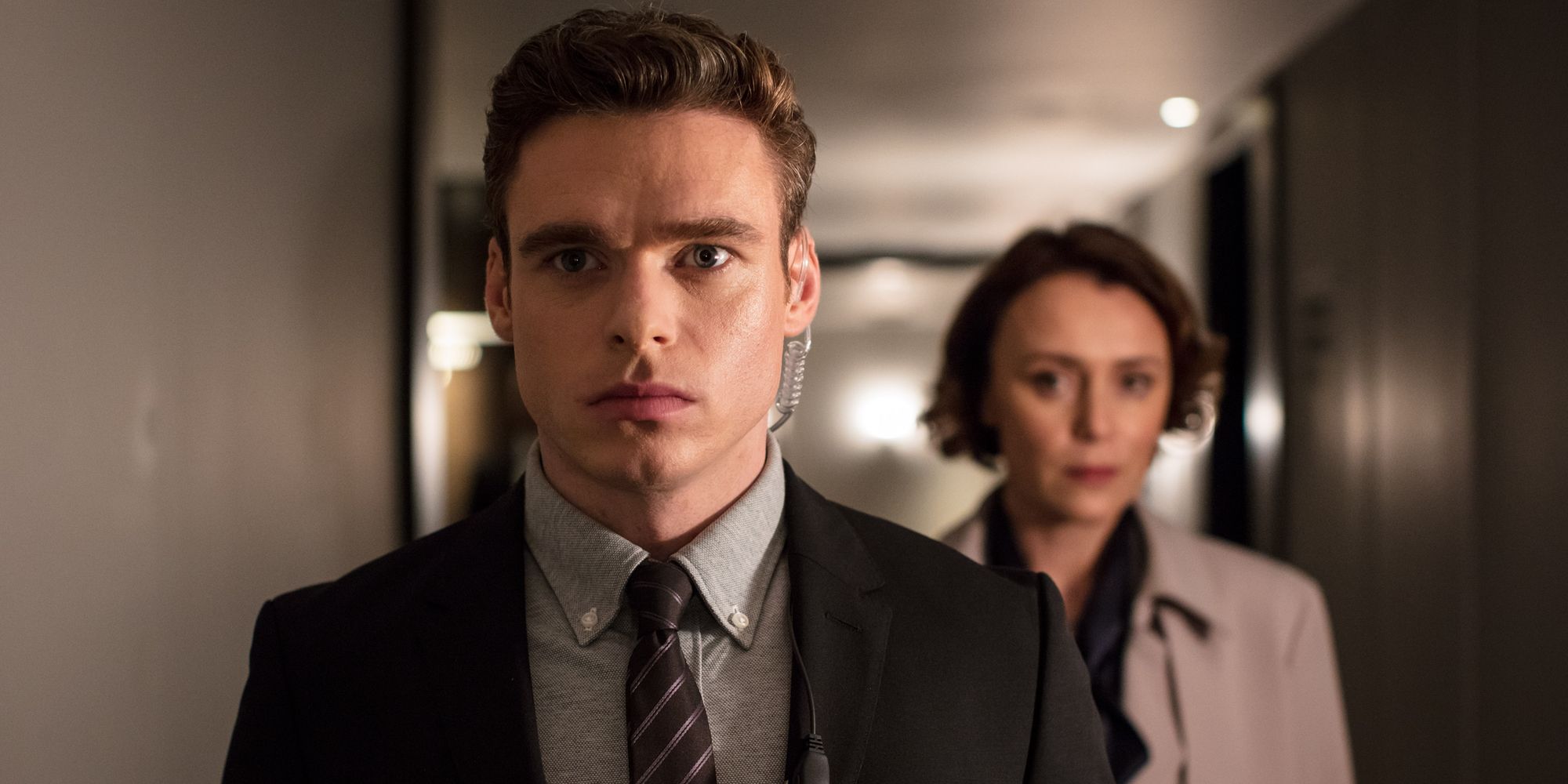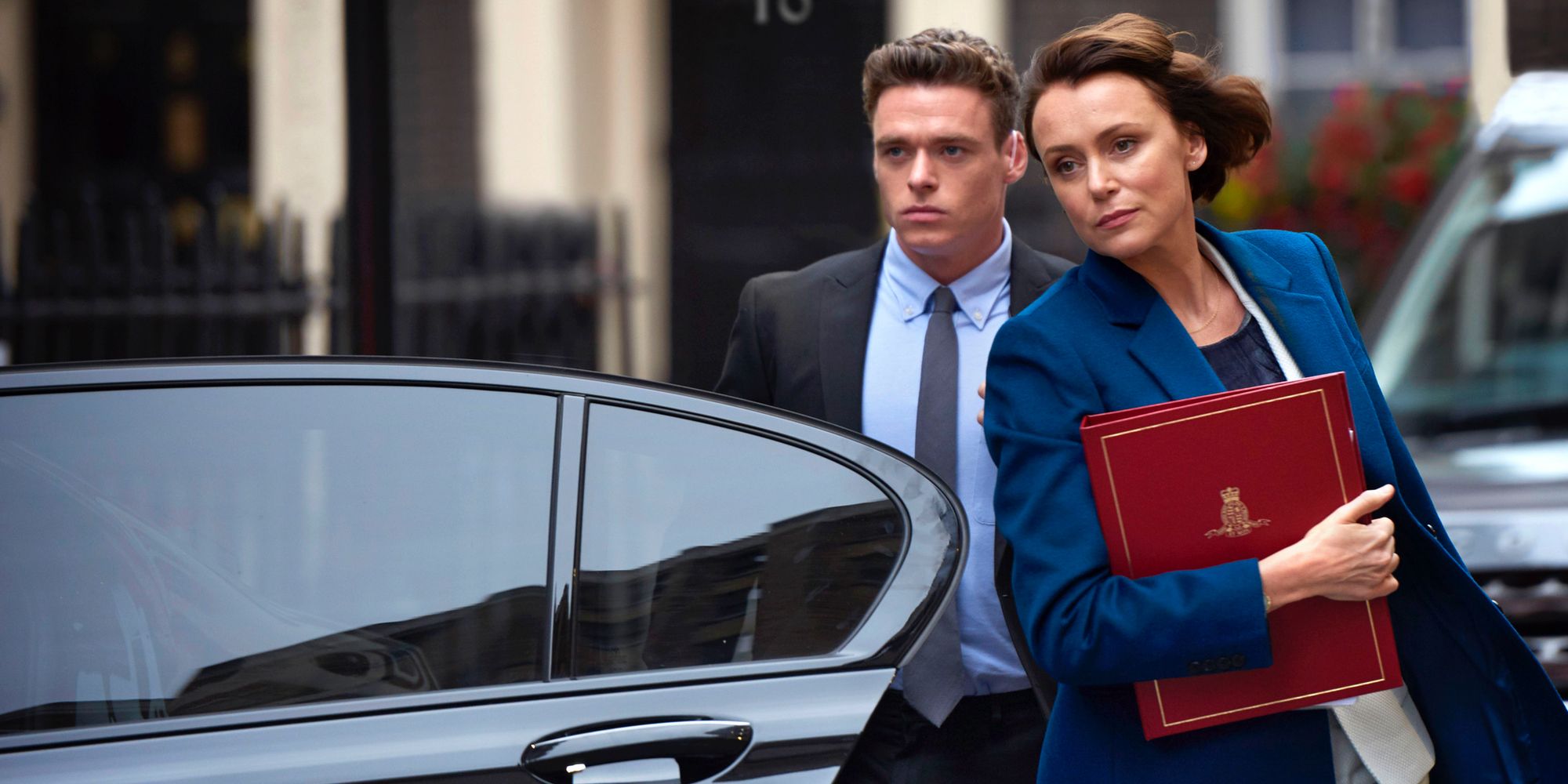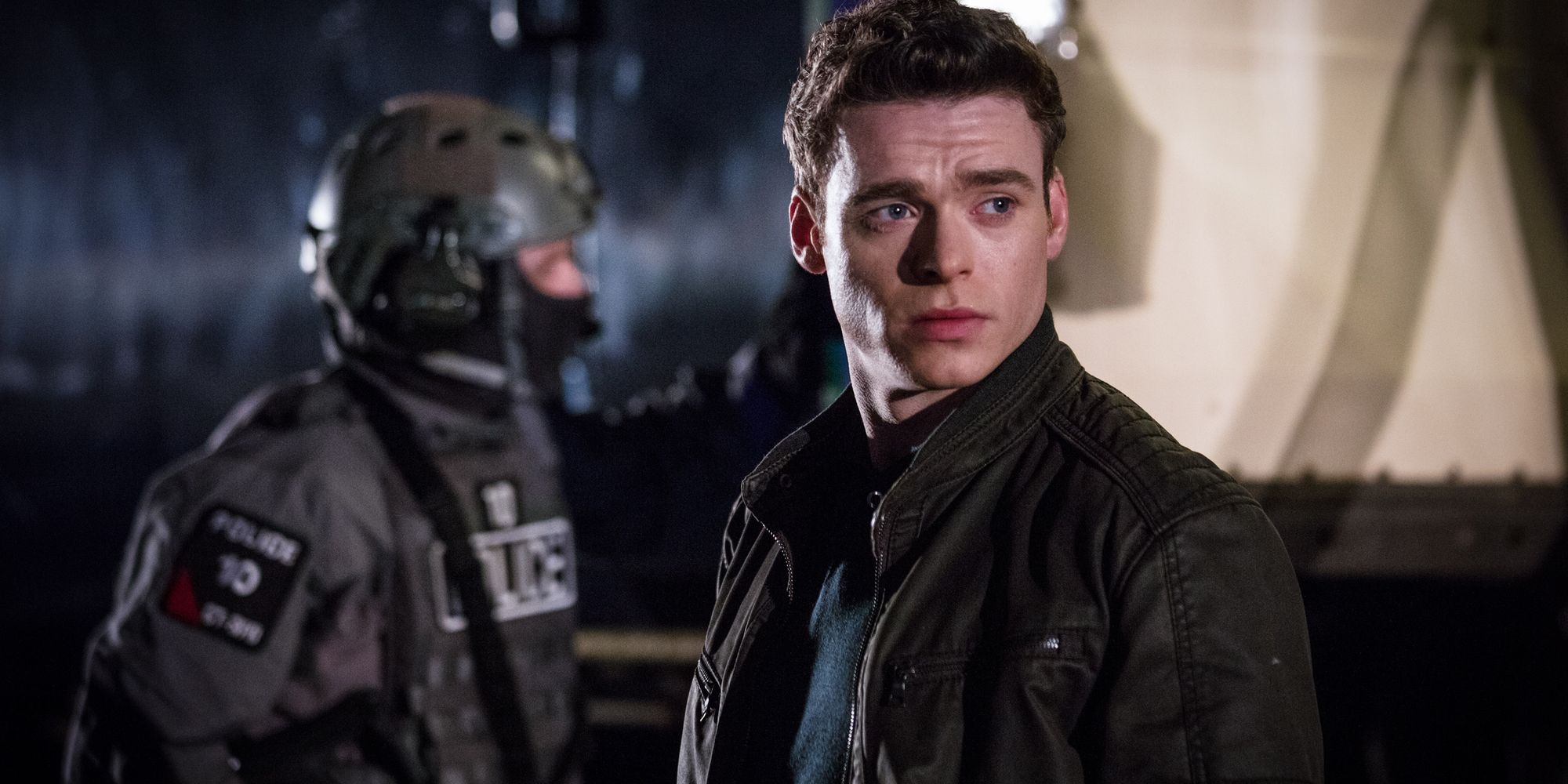
It’s been a minute since Richard Madden caused hearts to stop during the Red Wedding in season 3 of HBO’s Game of Thrones. The actor is back in perhaps his highest profile role since then as David Budd, a member of the Royalty and Specialist Protection Branch of London’s Metropolitan Police Service, in the hugely successful new series Bodyguard. The series premiered to astonishingly high ratings in the U.K., with U.S. audiences having to wait until now to take in all six episodes on Netflix, and it’s easy to say, the series was worth the wait.
A taught political thriller in the vein of the earliest seasons of Homeland, Bodyguard has been such a success that it has rocketed Madden to the front of the speculative queue to play the next James Bond. If that doesn’t work out, well, it probably wouldn’t be too disappointing if Madden continued making television series like Bodyguard instead.
More: The Conners Series Premiere Review: Roseanne Without Roseanne
Though it has more than just a title (minus the The) in common with the 1992 Kevin Costner and Whitney Houston film, the series soon proves to have more up its sleeve than the title or its trailers would suggest. The series aims to be more than a steamy thriller — though that is essentially its bread and butter — by turning a simple protection detail into a wide-ranging conspiracy that runs deep within the British government. And although the series turns once again to the threat of terrorism as its inciting incident, the story at hand soon becomes something more complex and, at times, complicated, as it concerns itself with ideas like PTSD and governmental abuse of power in the pursuit of national security. And while those are weighty concepts for any series to attempt to explore, Bodyguard’s primary focus is, first and foremost, in delivering an entertaining, popcorn thriller.

That’s not a dig on what is a tightly constructed series. In fact, what works best about Bodyguard is the manner in which it’s been constructed; that is, its pace and runtime. At a sharp six episodes the series makes terrific use of that relatively short amount of time, delivering near-60 minute episodes (the finale clocks in at 75 minutes, however) that don’t dawdle and overstay their welcome, but also know when to pump the brakes a bit. That understanding gives the show ample opportunity for the sort of twists, turns, and questions that made Homeland season 1 such a success. There’s even an event about halfway through the season that gives the brief impression it could be akin to the best twist Homeland had to offer.
Bodyguard is clever in the way it announces itself as something of a standard story of a hero-cop/soldier caught up in a web of deceit he's ill-equipped to handle. In that sense, it's similar to your standard Liam Neeson thriller. David, traveling home with his two small children, thwarts a terrorist attack on a commuter train by de-escalating the situation rather than resorting to the sort of violence and bravado common to films and TV shows depicting such circumstances. That incident opens doors for David, who soon finds himself on the personal protection detail of Home Secretary Julia Montague (Keeley Hawes). Montague’s policy is pro war on terror, and she’s instrumental in putting forth policies that would severely impact personal privacy in the name of national security. That makes her a target, though by whom is part of an increasingly tricky mystery that begins to unfold, just as David begins to unravel.
One of Bodyguard’s key components is its ability to align the viewer with David, to understand how he’s been affected by his struggles with PTSD, his growing resentment toward the government officials who sent him and other soldiers to Afghanistan, and his fractured marriage to his wife Vicky (Sophie Rundle). At a certain point, however, the series alters the dynamic dramatically, proving David to be unreliable as the series’ protagonist, as his experiences and actions force the viewer to question precisely what’s driving him. Complicating matters further is his relationship with Julia, which, predictably, turns romantic, right around the same time David begins to question whether or not the Home Secretary is using him as a means to her own mysterious ends.

Where Bodyguard is most successful is in its handling of suspicion; namely, that no one is above it, not even David Budd. This creates a level of intrigue that helps sustain the series through its six(ish) hours, but it also gives credence to some of its more curious and conspicuous leaps, as far a believability is concerned. That’s a problem whenever a conspiracy at the center of a thriller like this threatens to “go all the way to the top,” and it’s no different here. But the series’ relative brevity helps to mitigate worry that the series has overplayed its hand, especially with regard to the scope and intended impact of the conspiracy, or the truth about those hoping to carry it out.
The end result is an engaging series that walks a very fine line between grounded political thriller and something far more outlandish. Though it teeters at times, Bodyguard never falls, and instead turns in an entertaining and frequently captivating six-episode series that shifts its focus and its direction with surprising ease, keeping viewers guessing not only as to who’s responsible, but as to what is really going on. By the time the six hours are up, Bodyguard comes as close as any series has to hitting the highs (and some of the lows) of Homeland season 1.
Next: House of Cards Review: Robin Wright Takes Command In Streamlined Final Season
Bodyguard season 1 is currently available to stream on Netflix.
from ScreenRant - Feed https://ift.tt/2EDt6To

0 Comments